Stadtman Investigators
Meet 17 Stadtman Investigators
By The NIH Catalyst Staff
Slowing blindness progression, understanding the molecular, cellular, and genetic drivers of cancer development, applying decision science in clinical settings, and preventing hearing loss and balance disorders, are just a few examples of the exciting research being conducted by the latest cohort of scientists selected for the Earl Stadtman Tenure-Track Investigators Program.
The Stadtman program, which began in 2009, is named for renowned biochemist, senior investigator, and mentor Earl Stadtman (1919–2008), who devoted his 57-year NIH career to identifying the mechanisms of cellular energy expenditure and metabolism.
The program crosses all areas of biomedical and behavioral research, designed to attract a diverse group of talented early-career scientists who might not typically apply to NIH via general searches conducted by individual institutes and centers (ICs).
Here, the NIH Catalyst introduces the 17 Stadtman Investigators who joined various NIH ICs in 2022 and in 2023.
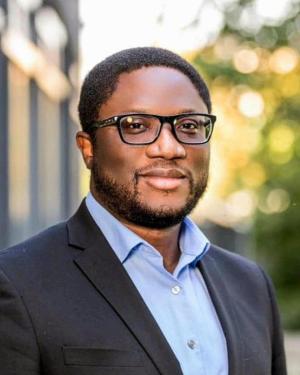
Mustapha Abubakar, M.D., Ph.D., NCI–DCEG
Integrative Tumor Epidemiology Branch
https://irp.nih.gov/pi/mustapha-abubakar
Research: Applies computational pathoepidemiology to explore how tissue ecosystem disruption drives the etiology, natural history, tumor heterogeneity, and clinical outcomes of screening-detectable cancers.
Learn more: PMID: 40210131; PMID: 33952648
Became Stadtman Investigator in 2022.
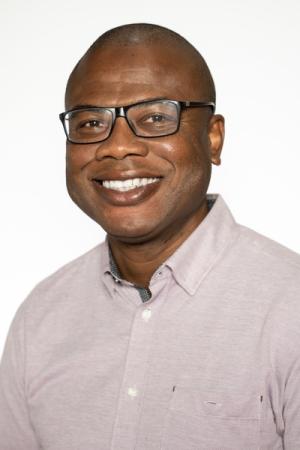
Stanley Adoro, Ph.D., NCI-CCR
Experimental Immunology Branch
https://irp.nih.gov/pi/stanley-adoro
Research: Researches the mechanisms of immune cell dysfunction and blood cancers with a focus on the role of proteome stress sensing and resolution in blood cell development, immunity, and leukemogenesis.
Learn more: PMID: 39789376; PMID: 38352301
Became Stadtman Investigator in 2022.
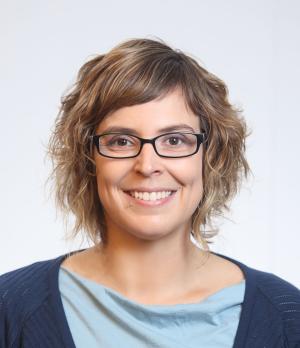
Angela Ballesteros Morcillo, Ph.D., NIDCD
Section on Sensory Physiology and Biophysics
https://irp.nih.gov/pi/angela-ballesteros
Research: Explores how mechanoelectrical transduction channel complex and sensory inner ear hair cell physiology effect hearing loss and balance disorders.
Learn more: PMID: 35921424; PMID: 30063209
Became Stadtman Investigator in 2022.
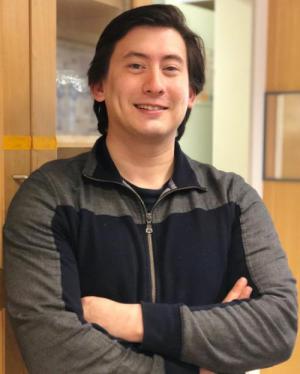
Eric Dang, Ph.D., NIAID
Molecular Mycology and Immunity Unit
https://www.niaid.nih.gov/research/eric-van-dang-phd
Research: Researches the microbiology and immunology of host colonization by fungi, in particular, exposure to the skin, gut, and lung tissue barriers.
Became Stadtman Investigator in 2022.

Jinani Jayasekera Devadoss, Ph.D., NIMHD
Health Disparities and Decision Sciences Laboratory
https://irp.nih.gov/pi/jinani-jayasekera
Research: Applies mathematical modeling and decision sciences to develop individualized interventions that could help reduce disparities and improve breast cancer care.
Learn more: PMID: 36455167; PMID: 34251881
Became Stadtman Investigator in 2022.
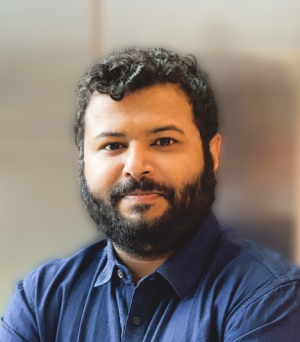
Diptavo Dutta, Ph.D., NCI–DCEG
Integrative Tumor Epidemiology Branch
https://irp.nih.gov/pi/diptavo-dutta
Research: An ’omics researcher who explores the genetic etiology of cancers, primarily focusing on genome-wide association studies and the downstream analysis to identify molecular and ’omic targets.
Learn more: PMID: 35501419; PMID: 38671320
Became Stadtman Investigator in 2022.
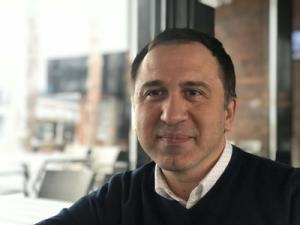
Amiran Dzutsev, M.D., Ph.D., NCI-CCR
Laboratory of Integrative Cancer Immunology
https://irp.nih.gov/pi/amiran-dzutsev
Research: Explores the role of the gut microbiome in cancer susceptibility and outcomes, especially as it relates to immune function.
Became Stadtman Investigator in 2022.

Tiarnán Keenan, BM BCh, Ph.D., NEI
Division of Epidemiology and Clinical Applications
https://irp.nih.gov/pi/tiarnan-keenan
Research: An expert in age-related macular degeneration (AMD) who has noted AMD consists of multiple partially distinct diseases and is working toward better diagnoses and treatments to slow progression to blindness.
Learn more: PMID: 39025435; PMID: 38657840
Became Stadtman Investigator in 2023.
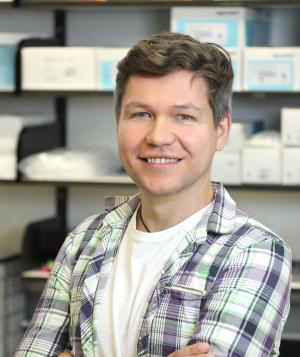
Mardo Kõivomägi, Ph.D., NCI-CCR
Laboratory of Biochemistry and Molecular Biology
https://irp.nih.gov/pi/mardo-koivomagi
Research: Takes a multidisciplinary approach to build quantitative models of the cell cycle and develop cancer-specific therapeutic strategies that target key interactions during cell division.
Learn more: PMID: 40174666; PMID: 30982746
Became Stadtman Investigator in 2022.

Augustin Luna, Ph.D., NLM
Computational Biology Branch
https://www.nlm.nih.gov/research/researchstaff/LunaAugustin.html
Research: Conducts pan-cancer and rare cancer analyses via network-based machine learning methods using pharmacology and multi-omics data. He, also, explores the use artificial intelligence to structure and analyze data to aid mechanistic interpretation to understand dysregulation in disease.
Learn more: PMID: 33196823; PMID: 40182174.
Became Stadtman Investigator in 2023.
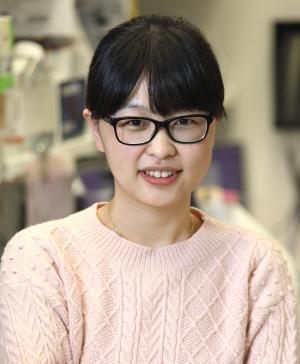
Lichun Ma, Ph.D., NCI-CCR
Cancer Data Science Laboratory
https://irp.nih.gov/pi/lichun-ma
Research: Seeks to understand the intrinsic biology of liver cancer by integrating cutting-edge single-cell spatial ’omics assays with machine learning approaches to identify therapeutic vulnerabilities for effective cancer interventions.
Learn more: PMID: 31588021; PMID: 37725716
Became Stadtman Investigator in 2022.
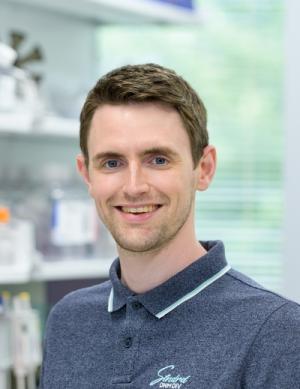
Francis O’Reilly, Ph.D., NCI-CCR
Center for Structural Biology
https://irp.nih.gov/pi/francis-oreilly
Research: Visualizes and describes how proteins are organized by using cross-linking mass spectrometry and other proteomics-based technologies combined with cryoelectron microscopy to functionally characterize protein interactions to understand their molecular relevance to human health and cancer.
Became Stadtman Investigator in 2022.
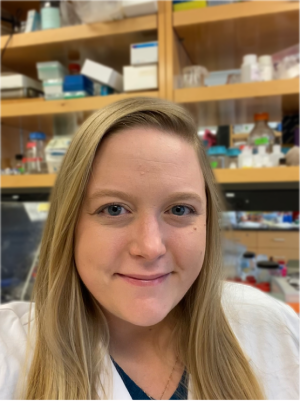
Margaret Rodgers, Ph.D., NIDDK
Ribonucleoprotein Assembly Section
https://www.niddk.nih.gov/about-niddk/staff-directory/biography/rodgers…
Research: Uses single-molecule methods to understand the molecular mechanisms guiding assembly of essential RNA-protein complexes, or ribonucleoproteins, and how disruptions contribute to disease.
Learn more: PMID 37116495; PMID: 31761536
Became Stadtman Investigator in 2022.
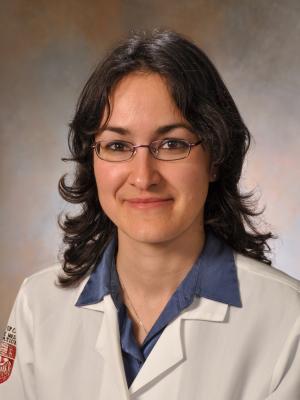
Vassiliki Saloura, M.D., Ph.D., NCI-CCR
Thoracic and GI Malignancies Branch
https://irp.nih.gov/pi/vassiliki-saloura
Research: Explores the mechanisms through which protein methylation mediated by protein methyltransferases and demethylases drives oncogenesis, therapy resistance, and immune evasion in squamous cell carcinoma of the aerodigestive tract, with a special focus on human papilloma virus-negative head and neck squamous cell carcinoma.
Learn more: PMID: 37463106; PMID: 39310755
Became Stadtman Investigator in 2022.

Blake Warner, D.D.S., Ph.D., NIDCR
Salivary Disorders Unit
https://irp.nih.gov/pi/blake-warner
Research: Combines genomics, spatial biology, and clinical research to understand pathogenic immune-epithelial interactions, uncover novel mechanisms, and develop targeted therapies for diseases associated with salivary gland dysfunction, including Sjögren’s disease and immune checkpoint inhibitor–associated sicca.
Learn more: PMID: 38527764; PMID: 38016469
Became Stadtman Investigator in 2022.
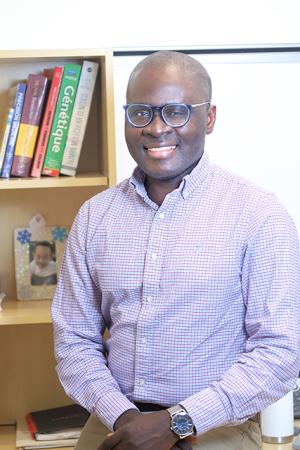
Urbain Weyemi, Ph.D., NCI-CCR
Developmental Therapeutics Branch
https://irp.nih.gov/pi/urbain-weyemi
Research: Explores cancer biology by mapping redox and metabolic changes associated with genomic instability in tumor cells.
Learn more: PMID: 40208791; PMID: 36724254
Became Stadtman Investigator in 2022.
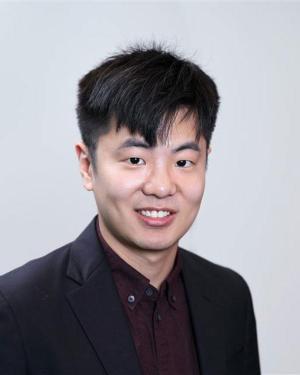
Haoyu Zhang, Ph.D., NCI–DCEG
Biostatistics Branch
https://irp.nih.gov/pi/haoyu-zhang
Research: Explores the genetic architecture of breast cancer subtypes by creating or applying Mendelian randomization and polygenic risk score methods.
Learn more: PMID: 32424353; PMID: 37749244
Became Stadtman Investigator in 2022.
This page was last updated on Tuesday, May 20, 2025
